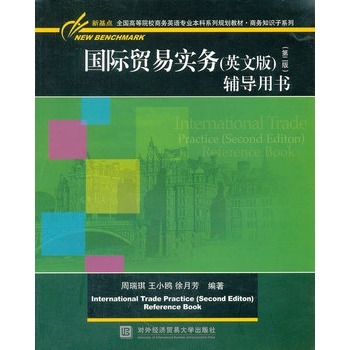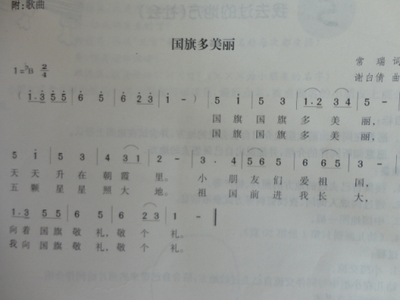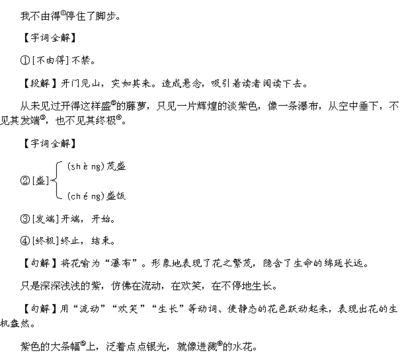also stipulated that the buyer was entitled to cancel the contract or return the payment that had already been made. Evidently, the restrictive date of arrival served not as the date of payment, but as a condition of payment. Therefore, legally the contract was not a genuine CIF contract as it made physical delivery a condition of payment.
Chapter 6 International Cargo Transport
6.7.2 1) D 2) C 3) D 4) B 5) C 6) C 7) B 8) A 9) A 10) B
6.7.3 1) T 2) T 3) F 4) F 5 ) T 6) T 7) F 8) T 9) T 10) F
6.7.4
cargo / manifest / bills of lading / consignments / documents / insurance policy / commercial invoice / Customs and Excise
Clearing and forwarding / transportation / loading and unloading / dock services
shipping marks / stenciled / identifying / unloaded / inspected / cleared / destination
6.7.5

Analysis on Case 1:
Company B should compensate Company C, because the consignee only relies on the B/L to protect his right in transportation.
Once the bill of lading is transferred to a third party, the carrier cannot use the discrepancy in content on the B/L and the actual condition as an excuse to defend a third party B/L holder. If the carrier issues a clean B/L, the carrier is responsible for delivering the described goods to the consignee.
In this case, Company B should compensate Company C before making claims against Company A for payment. Analysis on Case 2:
The issuing bank was justified in doing so because the B/L should be issued by Cosco instead of the agent according to the credit. In this case, however, there was no Cosco (or its branch) in Shantou and Shantou Cosco Container Transportation Co. was its only agent of Cosco in Shantou, thus the B/L clause amended as ―B/L can be issued by Cosco or its agent‖.
Chapter 7 Cargo Transport Insurance
7.8.2 1) B 2) A 3) A 4) D 5) D 6) B 7) C 8) D 9) A 10) A
7.8.3 1) T 2) T 3) T 4) T 5) F 6) T 7) T 8) F 9) F 10) T
7.8.4 1) 共同海损 2) 单独海损 3) 保险单 4) 平安险
5) 偷窃、提货不着险 6) 仓至仓条款 7)保险费
8) 近因原则 9) 中国保险条款 10) 水渍险
7.8.5
Analysis on Case 1:
(1) and (3) belong to particular average, whereas (2), (4) and(5) belong to general average, because the losses of (1) and (3) were caused by the fire directly and the losses and expenses of (2), (4) and(5) were caused intentionally for the safety of the ship and the consignments.
Analysis on Case 2:
If the goods are exported on CIF basis, the insurance company should undertake to compensate for the loss, because the coverage scope of F.P.A. includes partial or total loss consequent from falling of entire package or packages into sea during loading. However, if the goods are exported on FOB or CFR basis, the buyer should effect insurance. Before the goods pass alongside the ship at the loading port, the seller still has not transferred the risk of loss to the buyer, and the buyer still has no insurable interest. Therefore, the insurance company shall not be responsible for the
·5·
compensation. Instead, the seller should be responsible for the loss of the goods.
Chapter 8 International Payments
8.7.2 1)延付信用证— b 2)红条款信用证 — d
3)光票信用证— a 4)不可撤销信用证 — c
5)保兑信用证— e 6) 即期汇票 — f
7)付款交单 — g 8) 赊账 — i
9)预付现金 — j 10)保函 — h
8.7.3 1) B 2) A 3) C 4) A 5) A 6) A 7) B 8) B 9) D
10) B 11) B 12) C 13) A 14) B 15) B
8.7.4 1) F 2) F 3) T 4) T 5) T 6) F 7) F 8) F 9) F 10) T
11) F 12) T 13) F 14) T 15) T
8.7.5
Analysis on Case 1:
D/P and D/A are two types of collection. The latter bears more risk than the former for the exporter. Under D/A, once the importer obtains transport documents, he can take delivery of the goods. If the importer fails to make payment at maturity, the exporter will lose both the goods and the payment. In this case, the exporter should have realized the risk of changing D/P into D/A. According to UCR522, Article 11, once the principal (the exporter) has given clear instructions, banks assume no responsibility for any consequence thus incurred. All is to be borne by the principal himself.
The lessons drawn from this case are:
1) Collection is based on commercial credit. That is to say, the bank does not assume primary liability to make payment, and whether the principal can obtain the payment depends on the importer’s credibility. Therefore, only when doing business with an importer of good reputation can the exporter choose payment by D/A.
2) Under collection, the transport documents should not be made out to order of the importer, but should be made out to order and blank endorsed to avoid the importer's picking up the goods directly and to facilitate the bank's negotiation of the transport documents.
3) D/P is always a better choice than D/A. For substantial deals, a combination of D/P and D/A is recommended. Payment by collection should be avoided by all means in substantial export transactions.
Analysis on Case 2:
It is stipulated in UCPS00 Article 37 that ―The description of the goods in the commercial invoice must correspond with the description in the Credit. In all other documents, the goods may be described in general terms not inconsistent with the description of the goods in the Credit.‖
Therefore, the name and description of the goods in the commercial invoice must fully comply with that in the credit, or the issuing bank will be offered a reason to refuse to pay.
This case clearly shows that the banks involved in credit operations do not examine the actual conditions of the goods. Although the exporter had shipped the
goods better than those provided in the credit, the bank still followed the principle
of ―dealing with documents and not with the goods‖ and ―seeing that documents appear on their face to be in compliance with the terms and conditions of the
credit‖. No wonder the issuing bank refused to make payment.
·6·
Chapter 9 Inspection, Claims, Force Majeure and Arbitration
9.7.2 1) F 2) T 3) F 4) F 5) F 6) F 7) T 8) F 9) F 10) F
9.7.3
Procedures of Arbitration
9.7.4 1) B 2) A 3) A 4) C 5) A 6) A 7) C 8) C 9) D 10) B
9.7.5
Analysis on Case 1:
Company A cannot be exempted from delivery obligation and cancel the contract because of force majeure. Force majeure events and consequences are uncontrollable, unpredictable, unavoidable and insurmountable.
Although flood can be a force majeure event, the flood in one wheat production place cannot cause Company A’s inability to provide the wheat, and he can buy wheat elsewhere. Company A can overcome the bad influence of flood, so the flood here is not a force majeure event and it cannot lead to Company A’s exemption of delivery obligation. Analysis on Case 2:
Even though Company Y should be responsible for the non-operation, Company Y’s refusal is reasonable. The crux is the period for claim. The period for claim refers to the effective period in which the claimant can make a claim against the party in breach. Claims beyond the agreed effective period can be refused by the party in breach. Therefore, the claim period should be reasonably fixed. Generally, a period that is too long may put the seller under heavy responsibility and a period that is too short may make it impossible for the buyer to file a claim. In addition, a detailed stipulation in respect of the starting date for making a claim should also be included in the clause. In this case, the claim was made beyond the agreed effective period. So Company Y’s refusal is reasonable.
Chapter 10 The Performance of the Contract
10.6.2
1) The bank and the seller
2) the original advising bank
3) the mate’s receipt
4) the beneficiary
5) the shipping advice
6) China Exit and Entry Inspection and Quarantine Bureau
7) CCPIT, the exporter, China Exit and Entry Inspection and Quarantine Bureau
8) the carrier
9) 30 November 2007
10) accept all; refuse all
10.6.3 1) F 2) T 3) F 4) F 5)T 6) T 7) F 8) T 9) F 10) F
10.6.4
Analysis on Case 1:
The bank is right. According to UCP, without the confirmation from the issuing bank, the confirmation bank (if available), and the beneficiary, an irrevocable L/C should neither be withdrawn nor amended. The requirement from the beneficiary was accepted only by the importer without the agreement from the issuing bank. Therefore, the bank has the right to refuse the negotiation of payment.
Analysis on Case 2:
According to the trade term FOB, the importer is responsible for booking space for the shipment. In case the importer fails to do so, he should advise the exporter about the fact and negotiate with the exporter to amend the L/C to postpone the shipment date, or ask the exporter to help to arrange shipping while footing the bill for the costs in such proceedings.
·7·
爱华网www.aIhUaU.com网友整理上传,为您提供最全的知识大全,期待您的分享,转载请注明出处。 爱华网
爱华网



